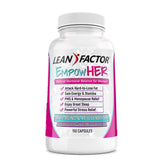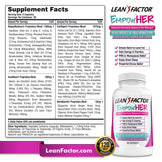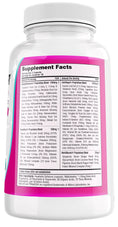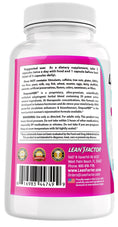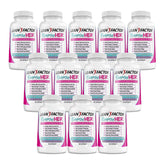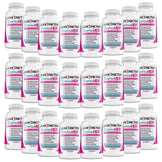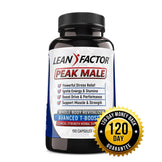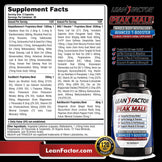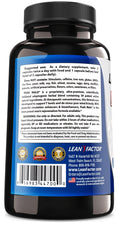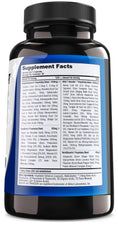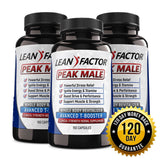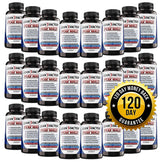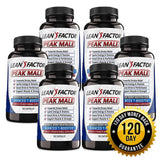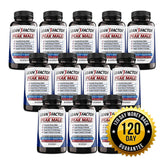Description
Description
We have all heard the expression ‘Knowledge is power’, is this really true?
The truth is knowledge is only potential power. Like so many things in life, knowledge is only a powerful tool if it is applied in the proper way.
How many times have you read an article or book which you have learned life-changing information and not applied it to your life or passed it on to others? The mistake of not applying your new-found knowledge happens more than you think and is exactly why knowledge is only potentially powerful.
In today’s high-tech world acquiring the knowledge is not the issue. The internet has made that task much easier. The challenge in is figuring out where, when and how to apply it.
This is what makes knowledge a truly powerful tool.
Knowledge
I remember when I first got into the herb industry 20 years ago. While information on the internet was growing at a very fast pace, it was not as easy to get information like it is today. Back then, it was more of a controlled chaos. Much of my knowledge came from hours and hours of reading books (Ya know, the kind you hold in your hands and turn the pages). While I use all the wonderful tools available these days, there is still no replacing the feeling of a good book in my hands. I can just sit in a room and get lost in my own head as the knowledge flows into my brain. There is no feeling in the world quite like it.
Because of modern technology, I am also able to listen to books when I am driving in my car. This allows me to continue gaining access to information I want with no limitations.
While information is much easier to obtain in today’s world, it does come with a price. The price I am speaking of is not money. I am speaking of …
The time it takes to filter through massive amounts of information
As you know, the information on the internet is not always about facts. There is a unique mix of opinions and facts that need to be carefully filtered through. This can consume a good amount of your time which makes it a downfall of modern technology.
Even when you look up studies on pubmed.com, you need to do some due diligence on who did the study and was it truly unbiased. There are many publications out there that list a host of references at the end. Have you ever taken the time to look at all of the references? If not, what compelled you to take the writer’s word for it? Was it that you were just so impressed by the list of references that you thought “This person must know what they are talking about”? If you are looking for factual information, do your homework and ask the hard questions.
Picking out the right information for you:
With all the wonderful books and articles available, it can be very confusing on where to start. The first thing you must decide on is the category of material you want to read. The four main categories to choose from are; entertainment, inspiration, knowledge and how-to books, and articles.
- Entertainment - I am not a big fan of this category. This is mostly novels and some biographies and autobiographies that fall under this category. I found, for what I am seeking in knowledge, these are just not for me. Once in a blue moon, I have found an article or biography about someone who inspired me and I learned valuable lessons from them. So, while it is rare for me, I do sometimes take the chance and seek out this form of material.
- Inspiration - For some people (myself included) this area can be a bit tricky. I have found that until you dig into the material of this type, you really don’t know how inspiring it is to you. A great example is that I am not normally someone who enjoys books written by Anthony Robbins, but his financial books, have been a great tool for me and are packed with wonderful information! If I didn’t flip through the book and just assumed because Anthony Robbins wrote it that I would not like it, I would have missed out on a great book with tons of useful tips. Since time is our greatest asset and I am not a fan of wasting time, if I find inspirational material that even slightly peaks my interest, I will always see it through and finish the book. I feel if I am going to invest the time, I will most likely learn something from it. We all find inspiration in a different way, so, it is important to know what inspires you and use it as a tool for continuing to move forward.
- Knowledge - These are by far my favorite because they not only educate me but they inspire me as well. I love books that are based on both factual information and personal experience-based information. In my opinion, there is no greater way to learn. I am the type of person who does not necessarily get inspired by an individual’s life story or their successful results. I am someone who likes to know who and where they learned it from and apply that information to my situation to see if it will work for me. I am a risk-taker (sometimes calculated) so THAT IS WHAT INSPIRES ME.
- ”How to” books - Because time is such a valuable asset, at times I like to get simple, straightforward facts. “How to” books, articles and videos are a wonderful way to achieve this goal. I consider them the quick recipe for potential success.
I believe that simplicity has much greater value than complexity
Once you have figured out the categories of material you want to learn, I suggest looking into the following three areas to know you have made the right choice:
- The Author - Anyone today can put words on paper or a screen and claim to be an expert. You see this in today’s high tech world more than ever. Before you dig into that material find out about who the author is and what they have accomplished. If their accomplishments are of interest to you or in line with your goals than you may have a winner. I want to make a very important point about this topic. Just because someone is successful, does not mean, that their values are in line with yours or, that you will learn something positive from them. I don’t care how wealthy someone is, in my opinion, success is based on so much more than that one fact. I am not saying that you won’t learn valuable lessons from those who have different value systems than you, but, those people should not be your first line of defense when looking to educate yourselves. This is why I suggest you take the time and research the author of the material you are going to learn from.
- Reviews and credibility - I don’t put much stock in reviews. The biggest reason is the people reviewing the material may not have done their homework about the book nor the author. If the book or article was suggested to you, ask yourself a few important questions: Did the person who suggested this material read it themselves? (You would be surprised how many people suggest a book and don’t even take the time to read it themselves) Why did this person suggest the book and what did they learn from it? (Don’t be afraid to ask questions, The only dumb question is the one that you didn’t ask) Finally, if you have a mentor and they suggest specific educational material, then you should make it a priority to read. They are your mentor for a reason, so, learn as much from that person as possible.
- Subject - While diversified knowledge is a good thing, you can’t be an authority on everything. My old powerlifting coach used to call people who were just fair at everything but great at nothing a “jack off of all trades”. If you want to be great at something, pick a topic and read as much about it from as many different perspectives as possible and, apply it to as many real-life situations as possible. The more you know and the more you focus on one specific area, the odds will fall in your favor of becoming an authority. As an herbalist, I learned early on it is better to focus and be an authority on 10 plants than just knowing small bits and pieces about 200 of them. If those 10 herbs can be applied to almost every situation, then you have focused on the right area and spent your time well. This is not to say you can’t read and study hundreds of herbs, just don’t try to be an authority on all of them.
Do you read the same material more than once?
If not, you are missing out on a lot of important information. Whoever taught you about self-education, should have made sure you understood the importance of reading the same material many times over. This is a most powerful habit in the self-education process. I am a huge believer in reading the same book many times for several reasons.
First, common sense should tell you there is no way you can learn everything on the first pass. Each time I re-read a book I learn more than I didn’t pick up
Do you cherry pick the chapters?
While I am personally a fan of reading all my books from cover to cover, there are many people who buy specific books as references or for very specific pieces of information. These types of books can be read cover to cover but, more often than not, people will cherry pick the chapters. The interesting thing about books of this nature is eventually they are read to completion -- but not in a specific order. I, too, have read a book cover to cover, went back and just cherry-picked specific chapters to re-read. The point is, it doesn’t matter how you learn the material as long as you are learning and applying it.
The end goal is about self-educating and applying that new-found knowledge to better you and the people around you.
I was told by many great people in my life that...
When you stop learning, you stop making progress
We are very fortunate that the world we live in has so many choices for how we can educate ourselves. Whether you are someone who learns better from reading, listening or watching, commit yourself to the process of learning every day to make a difference in both your life and the lives around you.
How are you going to turn your knowledge into power?
About Michael Stuchiner
 Michael Stuchiner is an experienced Master Herbalist, the Head of Education for Z Natural Foods, a teacher, and an accomplished author. With a 16-year specialization in medicinal herbs, Mike also has a vast knowledge of tonic and adaptogenic herbalism. Mike has enjoyed a 25-year career as an elite-level competitive powerlifter where he learned to heal his ‘mind and body’ as an avid user of herbal remedies.
Michael Stuchiner is an experienced Master Herbalist, the Head of Education for Z Natural Foods, a teacher, and an accomplished author. With a 16-year specialization in medicinal herbs, Mike also has a vast knowledge of tonic and adaptogenic herbalism. Mike has enjoyed a 25-year career as an elite-level competitive powerlifter where he learned to heal his ‘mind and body’ as an avid user of herbal remedies.
As an “in-the-trenches” herbalist, Mike has done more than 85 speaking engagements, consulted with clients ranging from young to elderly, worked with athletes in virtually all sports and with clients who have “dis-ease” states of a wide variety. Mike also mentors student Master Herbalists and will continue to teach the next generation to grow a deeper wisdom of the human body through appropriate herbal remedies.
For Bulk inquiries and custom formulations click here: https://www.znaturalfoods.com/pages/bulk



